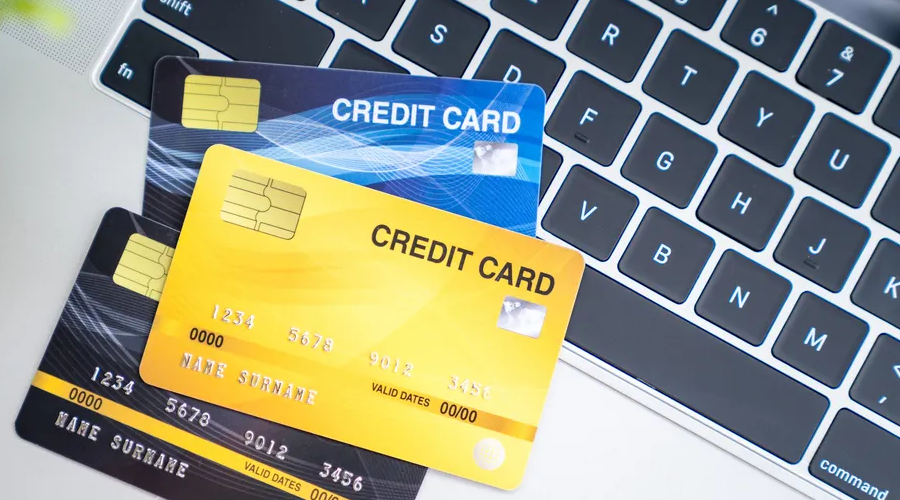It is critical to make prudent financial decisions at all times, including when searching for new secured credit cards. Responsible usage of a secured credit card can boost your credit score, making it easier to get unsecured loans and other financial products.
A secured credit card makes it easy to start, right? Secured credit cards, how they work, and five tips to help you attain your financial goals will be covered in this article.
Can You Explain Secured Credit Cards?
Most people think that secured credit cards are a beneficial way for those with bad or no credit to obtain money. You can make purchases up to the amount you’ve pre-set, just like with a regular credit card. But a security deposit is required in order to get a secured credit card. Your secured card’s spending limit is typically proportional to the amount of the deposit.
When customers put down deposits for secured cards, lenders lower their total risk level
Consequently, they have more leeway to be accommodating while assessing applications. When they provide secured cards, they are more willing to work with applicants who have poor or no credit history.
In some cases, a credit pull may not be required for a secured credit card. Lenders instead consider the borrower’s income, deposit capacity, and other comparable variables when deciding whether to extend credit. You can start establishing your credit score with a secured card if you have poor or no credit and can’t get a standard unsecured card.
The Basics of Secured Credit Cards: What Are They?
Secured credit cards function similarly to unsecured ones, with the exception that a security deposit is required to open the account. Your credit limit determines the maximum you can charge on your card at once. A minimum monthly payment is also required, in addition to an interest rate (sometimes expressed as an annual percentage rate).
You can charge new purchases using the portion of your credit line that you pay off first. The ability to continually pay off the balance and then spend up to the credit limit again is what gives credit cards their “revolving” name. It sets in motion a vicious loop that could go on forever.
A secured card might help you build credit if you use it wisely. A good rule of thumb is to pay all of your bills on time and never use more than 30% of your available credit.
On the other hand, blunders could lower your credit score. Your credit score could take a hit if you engage in questionable behavior, such as skipping payments or charging the entire balance. If the lender closes the account and pays off your balance with your deposit, it’s not ideal. A secured card may not provide you access to better credit or other financial products, but it can be a stepping stone with responsible use.
5 Strategies for Making Secured Credit Cards Available
1. Selecting the right secured credit card is crucial
Secured credit cards, like unsecured ones, have their own set of pros and cons. There are several with more affordable APRs. Some of them have reduced minimum deposits, cash-back incentives, and other excellent features.
Ultimately, your own requirements and tastes will determine the best secured credit card for you. A card that doesn’t charge you for foreign transactions can be useful if you often go abroad. If you don’t intend to use the card outside of the US, though, that functionality won’t matter. You should consider all of the cards’ strengths and weaknesses before submitting an application.
2. Keep your monthly payments in full
A higher-than-average interest rate is often associated with secured credit cards. No matter how small, interest on balances may add up quickly and eat up a significant chunk of your monthly budget.
If you want to be frugal, you should pay off your balance in full each month. It can help you avoid paying too much for a loan. Additionally, keeping the amount low maintains a good credit usage ratio. This can lead to a quicker increase in your credit score.
3. Save the card for necessary expenses
Getting a new credit card could make you want to treat yourself to a little overspending. However, that can change your behavior regarding the use of credit for unnecessary purchases, which in turn can cause you to accumulate large balances over time.
Using the card occasionally isn’t always a disastrous idea, though. To keep the account active and have it report your spending habits to the credit agencies, you may need to make a minimum number of transactions each month. Using the credit card for a couple of recurrent transactions, like paying for one or two streaming services, might be a beneficial way to start a positive habit. Then, you can avoid having a mountain of debt by paying off the amount each month.
4. Notifications provide a benefit
In order to keep tabs on their accounts, many secured credit card accounts give borrowers the option to activate various activity alerts. You may often receive notifications of new transactions, approaching limits, payment due dates, and other events.
To keep yourself updated on any account activity, enable notifications. To top it all off, alerts can help you avoid getting into too much debt or forgetting a payment by keeping you informed of your current balance and when payments are due.
5. It’s smart to monitor your credit score
When your credit is low, a secured credit card could be a beneficial way to get a higher score, but they might be more expensive than regular unsecured cards. It’s wise to monitor your credit score while using a secured credit card. After that, when things have improved enough, try to get an unsecured card that has better conditions.
If you meet certain requirements, such as paying your secured card balance in full and on time for a set amount of time, the issuing bank may extend the offer to an unsecured card. Nevertheless, once your credit score reaches the fair or good zone, you can discover a more favorable offer elsewhere. Keeping an open mind will allow you to switch to a different credit card that better suits your needs.

